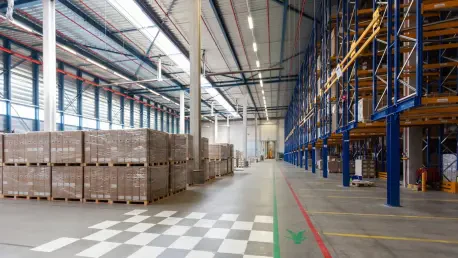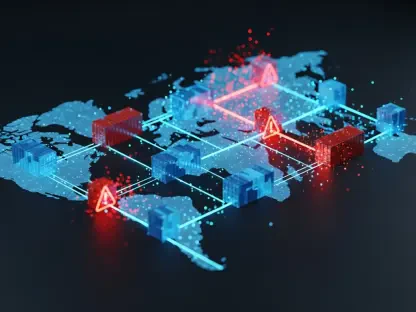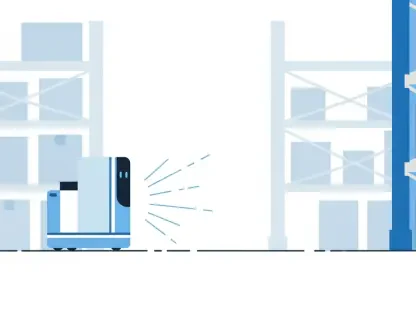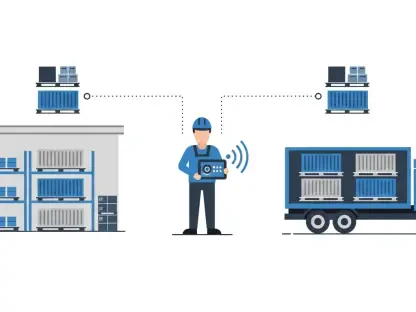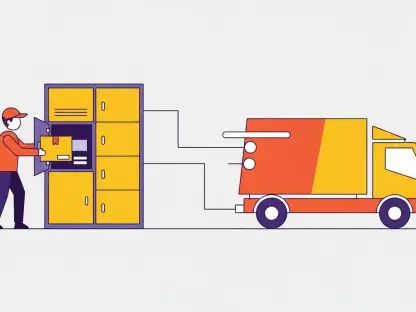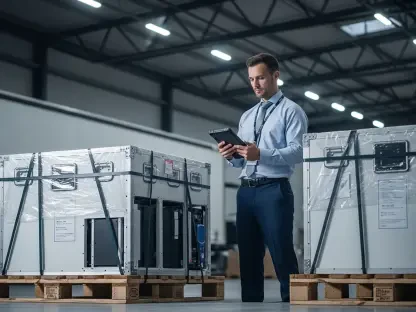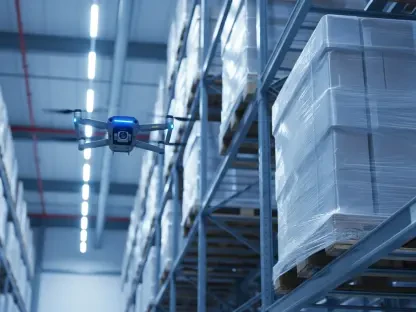Rohit Laila, a seasoned expert with decades of experience in the logistics industry, offers invaluable insights into cold chain logistics and sustainability. As someone deeply passionate about innovation, Rohit is perfectly positioned to discuss the evolving dynamics of this crucial sector. In this interview, we explore the significance of sustainability awards, the impact of temperature management on food safety, and the exciting advancements in technology shaping the future of cold chain logistics.
Can you tell us more about the Cold Chain Sustainability Awards and what criteria are used to judge the winners?
The Cold Chain Sustainability Awards are instrumental in recognizing those within the temperature-controlled logistics industry who push the boundaries of environmental responsibility and innovation. The judging criteria focus on the sustainable practices implemented by organizations, their impact on reducing emissions, and their commitment to pioneering new solutions that enhance sustainability. The goal is to celebrate achievements that set new benchmarks within the industry.
How do you see the impact of these awards on encouraging businesses within the temperature-controlled logistics industry to adopt sustainable practices?
These awards play an influential role in motivating businesses to prioritize sustainability. They serve as a benchmark for excellence, inspiring companies to innovate and adopt greener practices. The recognition also highlights the growing importance of sustainability in business operations, encouraging others in the field to follow suit in implementing environmentally friendly technologies and processes.
In what ways does cold chain management play a critical role in the food and beverage processing industries?
Cold chain management is vital for ensuring the integrity and safety of food and beverage products. It ensures that the correct temperatures are maintained throughout the supply chain, preventing spoilage and maintaining quality. This not only protects the consumer but also helps businesses avoid significant financial losses from compromised goods.
Could you provide some examples of potential consequences if product temperatures are not accurately maintained?
Failing to maintain precise temperatures can result in products becoming spoiled, unsafe for consumption, or losing their intended quality. This can lead to substantial economic losses due to wasted inventory and can harm a company’s reputation. Additionally, there are health risks involved if compromised products reach consumers.
What measures can businesses take to ensure every stopping point in the supply chain maintains the correct temperature?
Businesses should utilize advanced monitoring systems that provide real-time data on temperature throughout the supply chain. Regular audits, staff training, and investing in high-quality refrigeration equipment are also crucial. Ensuring proper communication and protocols are in place can help maintain temperature integrity at every point.
NewCold has recently launched a facility in Warsaw. What are the significant features of this new facility?
The NewCold facility in Warsaw is noteworthy for its state-of-the-art technology and capacity. It represents a €112 million investment with 94,600 pallet positions, significantly boosting storage capabilities in Poland. The facility underscores NewCold’s commitment to building a resilient and future-proof food supply chain across Europe.
How does NewCold’s expansion emphasize its commitment to a future-proof food supply chain?
NewCold’s expansion, emphasized by significant investments in cutting-edge facilities like the one in Warsaw, highlights its dedication to a sustainable and efficient food supply chain. By increasing capacity and employing advanced logistics technologies, NewCold is not only addressing current demands but is also setting the stage for a more resilient and adaptable future in food logistics.
Thermo King showcased new electrified and connected solutions. Can you elaborate on these advancements?
Thermo King’s new solutions exemplify the innovative shift towards sustainable transport. With the introduction of electrified and connected systems like the A-500e, an all-electric trailer TRU, they are setting a new standard in reducing fuel consumption and emissions. These advancements not only enhance operational efficiency but also support broader sustainability goals by minimizing environmental impact.
What are the key benefits, such as fuel savings or emissions reduction, of the Precedent® S-750i hybrid-electric trailer TRU?
The Precedent® S-750i offers significant benefits, primarily through enhanced fuel efficiency and reduced emissions. Its hybrid-electric design allows operators to decrease reliance on diesel engines, leading to lower operational costs and a smaller carbon footprint. This advancement aligns with industry goals of achieving more sustainable, eco-friendly logistics solutions.
Cold Chain Technologies exceeded its landfill avoidance target by a full year. What strategies contributed to this achievement?
Cold Chain Technologies achieved this milestone through a proactive approach to sustainability, embracing reusable and sustainable packaging solutions. By prioritizing recyclable materials and optimizing their packaging processes, they significantly reduced waste. These efforts demonstrate how strategic planning and innovative practices can lead to exceeding environmental targets.
How important is reusable and sustainable packaging in reaching environmental targets in the cold chain industry?
Reusable and sustainable packaging is critical in meeting environmental targets. It reduces waste and resource consumption, significantly lowering the industry’s environmental impact. As more companies adopt these practices, the cumulative effect significantly contributes to achieving broader sustainability objectives and encourages a circular economy.
From your perspective, how crucial is innovation for driving sustainability in the cold chain sector?
Innovation is the linchpin for driving sustainability. By developing and embracing new technologies, the cold chain sector can significantly reduce its environmental impact. Innovations enable more efficient, eco-friendly operations, from temperature control enhancements to fuel-saving transportation solutions, vital for sustainable growth.
What is your forecast for the future of cold chain logistics in terms of sustainability and technological advancement?
The future of cold chain logistics looks promising, with sustainability at the forefront. I anticipate continued advancements in technology, particularly in energy efficiency and digital monitoring, to play a pivotal role. The industry’s commitment to innovation will usher in more robust and sustainable practices, ensuring that logistics align with global environmental goals.
